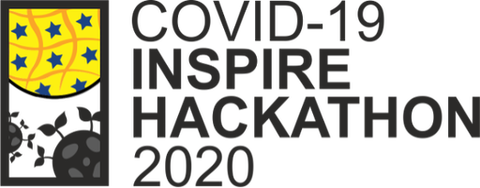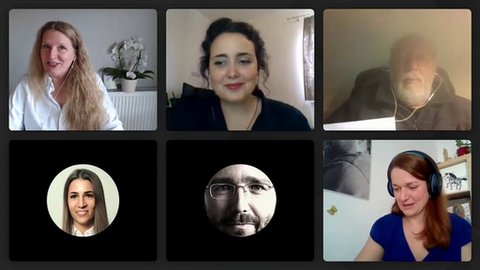Participants
130 registered participants
Winners
3 winning teams
Central Europe
Duration
5 days

Overview
This virtual Hackathon was based on the model of the INSPIRE Hackathon, which is not a single event. It is a process that was designed to efficiently exploit the achieved results of previous hackathons in developing new innovations. The main goal of the COVID19 INSPIRE Hackathon was to support innovation in agriculture through information technology, help agriculture recover from the problems that were caused by the coronavirus crisis, as well as search for new business models. Overall, thirteen innovation experiments were identified for the COVID19 INSPIRE Hackathon 2020. COVID-19 INSPIRE Hackathon has gathered more than 130 registered participants from 32 different countries. Despite the barriers that COVID-19 pandemic forms, the interest of agriculture researchers, practitioners and stakeholders was prominent.
When it comes to impact activities, the results of the winning teams (challenge #13 and challenge #6) were presented during the webinar session called "Open spring" to the Czech community. (A member of the SmartAgriHubs project - WirelessInfo, together with the Plan4all association, Czech Center for Science and Society and other Czech partners including Agricultural Association of the Czech Republic is organizing the webinar series called Open Spring. It is an activity of several Czech Agri-Hubs to support the Czech Agricultural Community, including farmers, industry, researchers, universities and the public sector. This “webinar marathon” is dedicated to those, who are interested in using open data in agriculture, education, the environment, spatial planning, tourism, tourism and transport. The audience will be acquainted with how to use open data in their own activities and applications for the needs of agriculture and other industries and with modern trends in the field of spatial data.)
In addition to that, there is another INSPIRE hackathon (Open Spring INSPIRE Hackathon) where the winning challenge #13 will continue - there will be a challenge aiming to design the AgroInfo - (web-based) application gathering information from various sources into an integrated, easy to interpret environment. The outcome of the challenge should be a detailed analysis of needs, the definition of use-cases, and app wireframes that could be used as a basis for developing the web application.
List of ideas that was worked on
- Best practices catalogue for EBAG (eco-, bio-, agro-, geo-) distance education
- Atlas of Regional Specialities
- Citizens Science Network for Peer to Peer Maps Sharing
- Rural Attractiveness Visualization
- WhiteBoard - Future Collaborative Maps
- Atlas of the Best Practices - Polirural cases
- Developing a blockchain technology to enhance tracking and tracing of food items throughout the value chain to ensure food security in Africa
- Digitalization of indigenous knowledge in African agriculture for fostering food security
- Production and Agri Logistics chain Cyber Assurance solutions
- Sustainable solution to chronic diseases like diabetes through organic farming
- Earth Observation for monitoring of regional food supplies deviations
- Atlas of Social Enterprises
- Calculation of agro-climatic factors - potential source of information for forecasting regional food supplies
Prizes
01
Publication of results in MDPI Journal, costs of publication covered
02
Publication of results in MDPI Journal, costs of publication covered
03
Publication of results in MDPI Journal, costs of publication covered
Hackathon
Organized by Plan4all, Czech Center for Science and Society
COVID-19 INSPIRE Hackathon 2020
Challenge #13 Calculation of agro-climatic factors – potential source ofinformation for forecasting regional food supplies.
The challenge aims to calculate all relevant agro-climatic factors (see below) in order to describe an area of interest comprehensively, using the algorithms published here. The challenge aims to test the global applicability of the factors’ calculations – thus we look forward to a wide variety of case study areas). The algorithms calculating the factors will primary use the worldwide ERA5 Land dataset as a climatic data source. Nevertheless, other data sources can be leveraged as well, e.g. The Copernicus regional reanalysis for Europe (CERRA), meteoblue historical API, free meteorological data from the Norwegian Meteorological Institute (API, download) or others.
Challenge #8 Digitalization of indigenous knowledge in African agriculture for fostering food security
The traditional knowledge of African agriculture has been used efficiently during many decades and until today in several areas of Africa for feeding African population. The smallholder farmers using traditional knowledge in entertaining their farms are mostly retired and their traditional know how are not written in scholar books for being transmitted to the future generation who expect to increase the farm production by using inputs brought abroad with high currencies like fertilizers, seeds and medicines as highlighted in the studies driven from modern schools where indigenous languages are no longer taught particularly in professional high schools.
First, it is mandatory to collect and digitalize all available traditional knowledge in African agriculture before being safeguarded in safe database available for African farmers.
Secondly, it is useful to assess the performance of traditional knowledge in African agriculture including the soil and seeds preparation; the mixture of varied crops in the same field; harvesting joined to fertilizing soil by ranking unused limbs and stems; saving crops in organic storage against harmful insects or other epidemic diseases.
Thirdly, it is gainful to spread broadly the best practices driven from traditional knowledge in African agriculture because practices of indigenous knowledge in agriculture do not need to spend a lot of infrastructures as well as financial resources.
The digitalization of indigenous knowledge of African agriculture will serve to create a big database of African traditional knowledge in Agriculture in favour of future African farmers’ productivity as well as to work out for the best issues of the hot questions below.
Challenge #6 Atlas of the Best Practices
In addition to the direct health threat, COVID-19 also brings with it many negative side effects, such as quarantine, restriction of movement, restriction of work, changes in supply, reduction of hobby activities and cultural activities, etc. Through the collection of best practice examples, the challenge aims to contribute to the discussion on how the negative impacts of COVID-19 can be addressed by innovative interventions, be they a new policy, a private sector scheme, a community measure, or an initiative started by an individual living in a countryside. The Challenge will collect and publish practical examples from across Europe, with the overall goal of reducing negative spill-over effects of the epidemic on everyday life in the rural regions. The individual examples will be published on the Atlas of the Best Practices, which is a platform developed by the Enabling project and is implemented into the PoliRural innovation hub to showcase success stories of rural new entrants.
The 3 winners were awarded with the publication of results in MDPI Journal, and the costs of publication will be covered.


